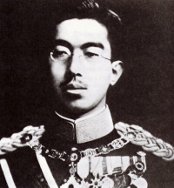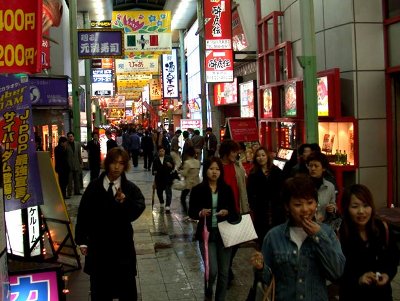- Confucian values in Bushido
- Confucianism and Neo-Confucianism
- Confucianism in Japanese art
- Confucianism in the context of a non-philosophical culture
- Confucianism as a religion squeezed out by “the System”
- Confucianism in modern Japanese society
Quoted/adapted from Patrick Smith, Japan: A Reinterpretation, originally published in 1997, and again, van Wolferen
Confucianism as a religion squeezed out by “the Japanese System”
There being nothing outside the Japan System to overrule or judge it, the System can only judge itself. This means that it is intrinsically virtuous and that criticism of its essence is impossible; its guardians confirm the fact when they insist that the order they represent is inherently benevolent. In this way the System also becomes a substitute for religion. Note here that “benevolence” (Jen) is the principle virtue promoted by the Confucian religion.
The religious qualities of the socio-political order that was constructed shortly before the turn of the century, and lasted until the bombs on Hiroshima and Nagasaki, were openly emphasized. State Shinto, established to provide spiritual nourishment for the ‘”emperor system,” functioned as an umbrella organization incorporating all other religions, which had to abandon any tenets that conflicted with emperor-worship.
State Shinto, together with theories of a “family state” centering on a divine emperor, is a thing of the past, and for some three decades following defeat in 1945 the Japanese heard much devastating criticism of the “emperor system.” Yet such criticism has not been based on theories profound and strong enough to serve as an alternative source of final explanations and political beliefs, and no secular system of beliefs has eradicated the old philosophy.
Nor has the post-war period produced even a simple determination that Japan should be governed in accordance with its constitution and laws. Thus the political culture of submission persists, and the System is for all practical purposes an unchallenged surrogate-religious force. The label “Japanism,” often used to describe pre-war behavior, is still useful in describing practices in the service of the System today.
The fact that the ideology of Japaneseness is nowhere concisely summed up and cannot be found embodied in a neatly bound volume on book store shelves is immaterial; it serves its purpose as supporting the System as admirably as would a formal Holy Writ. Communist ideology has frequently been likened to a religion, has indeed been labeled a “secular religion.” Its religious characteristics are obvious:
It provides a closed philosophical system, capable of “explaining” everything, which counters critical arguments against it by invoking the principles on which it itself is based. It has spawned a class of exegetes and a pseudo-priesthood. It invests those who use it with the great power of religious fervor expended in the name of a superior goal. In some ways Japanism is an even more effective surrogate religion than Communism.

Why? Because it is less examined, more taken for granted and more inescapable. And it comes with a number of the peripheral attributes of organized religion, including the risk of fanatical behavior and the fear of secularization. MM: Much the same here could be said of the system of Neo-Confucian governance in Korea, which was so difficult to displace, because it was above criticism. And much could doubtless be said of the original Confucian system.
*
Even though the various movements of officially endorsed Tokugawa learning were wholly domesticated and relentlessly supportive of the regime, they could not be entirely purged of visions that extended beyond the shogunal palace.
The nativist Kokugaku scholars, to give one example, had such visions when they emphasized Japan’s glorious tradition of divinely descended emperors. And the Chinese Neo-Confucianist writings that constituted the main portion of what every Tokugawa student memorized must have given the more probing mind occasional glimpses of a universal morality transcending the ideology of the shogunal administrators. More than a glimmering of this was contained in Japanese explications of the philosophy of the Chinese Wang Yang-ming school. Nakae Toju (1608-1648), founder of the Yomeigaku (Yang-ming studies) in Japan propounded the existence of a principle, pervading the whole universe, called meitoku (“true virtue”). When a person finds his or her own meitoku, he or she automatically becomes virtuous. In pursuing this idea, Nakae conceived of something close to a single personal God, which he referred to as the absolute truth, infinite and the final end of all. [Two notes in this paragraph cite (1) R. P. Dore, Education in Tokugawa Japan, Routledge & Kegan Paul, 1965 and (2) R. Tsunoda, Wm.T. de Bary and D. Keene (eds.), Sources of Japanese Tradition, Columbia U.P., 1958, p. 382.] Nakae’s thinking when stretched this far is neither steady nor consistent, but he did at least affirm with certainty the fact of an intuitive understanding of right and wrong.
MM: Despite their education in Confucian and Neo-Confucian texts, it would seem that the Japanese failed to imbibe universal principles. This is rather curious, since Confucius enunciates four of them: benevolence, righteousness, loyalty and trust, and Chu Hsi then codifies them. What could more clearly serve as a “universal morality” capable of transcending “the ideology of the shogunal administrators”? Wolferen argues elsewhere that the political and social ideology of the shogunate overrode any such universal principles, and the habit of opposing authority on the basis of such principles was neither developed nor tolerated.
Confucianism in modern Japanese society


